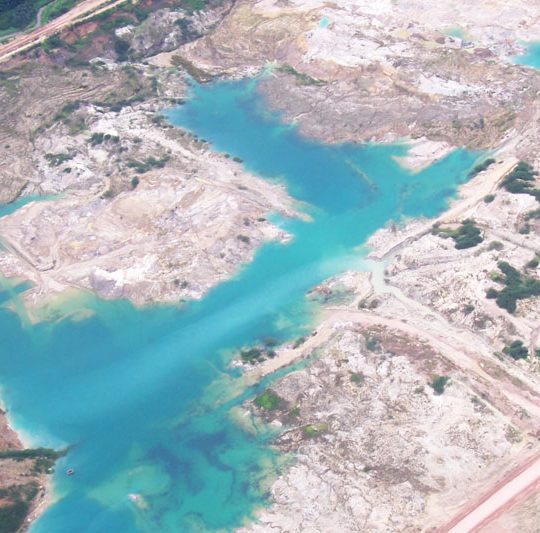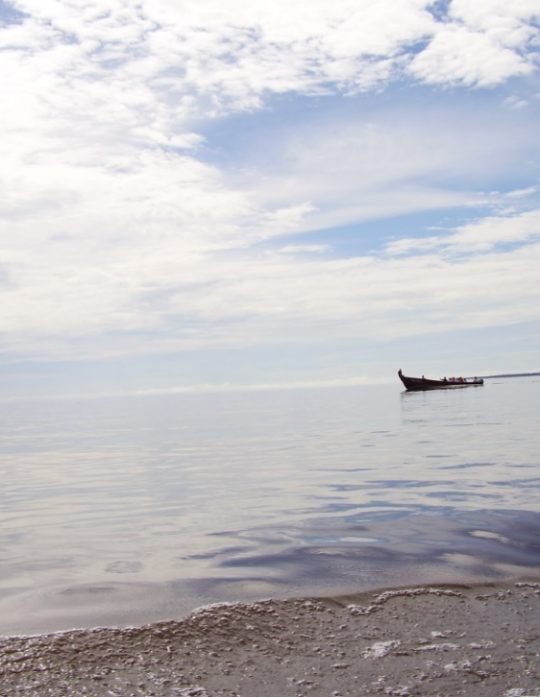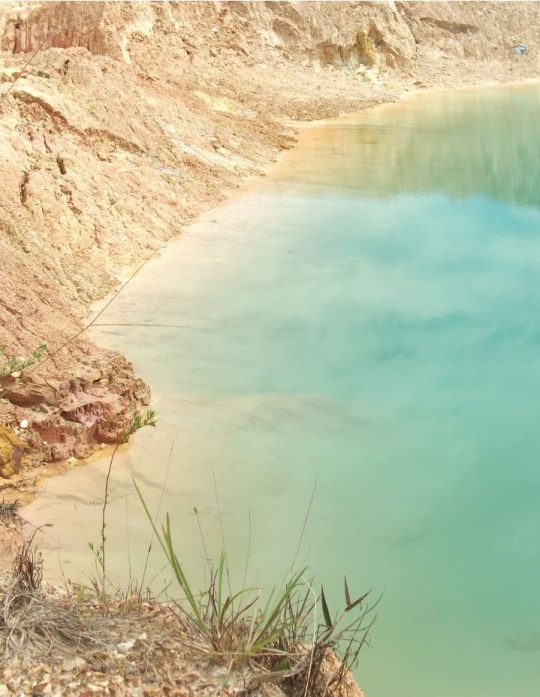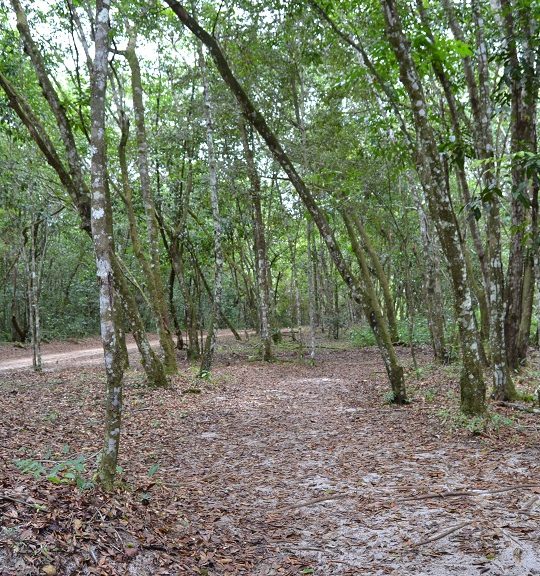EPO Kantoor
Office of Environmental Education and Public Outreach
The Office of Environmental Education and Public Outreach provides NIMOS’ services to the public. The Office develops materials and programs for environmental education for schools at all levels, publishes an annual environmental report and a national environmental bulletin, identifies and reacts to public environmental concerns, maintains a public information center on environment and serves as access point for the public to obtain NIMOS information. The Office ensures community and NGO involvement in environmental affairs and keeps ongoing, dynamic relationships with the media. The Office ensures that relevant activities reach the Interior and dedicates special efforts to involve Amerindian and Maroon communities in its programs. Specifically, the Office carries out the following tasks:
The Office will provide assistance in development of educational materials for schools and for adult education, will develop its own educational programs, will offer environmental training courses for teachers in high schools, will encourage schools to expand their environmental curriculum and will seek partners for the establishment of an environmental high school. The Office will do this in close collaboration with the Ministry of Education.
The Office will take responsibility for NIMOS environmental publications. Key publications recommended are:
- The Suriname Environmental Newsletter
- The National Annual Report on the Environment
The Suriname Environmental Newsletter is also edited and published by NIMOS on a monthly or quarterly basis in Dutch and/or English. The newsletter is distributed to management and personnel in line ministries, to NGOs, the private sector, schools and other educational institutions, public libraries, individuals, international organizations and scientists.
The office will enhance public awareness and
- will regularly notify the news media (news papers, radio, TV) on current events
- will make all Environmental Assessments accessible to the public
- will stimulate the media to engage in environmental reporting
- will provide assistance to the media for special programs, articles, series
- will invite the media to conferences, workshops, field trips, and other events.
- will call for a press conference at least once a year when the annual report is published.
NIMOS will establish a Public Information Center, a national center of environmental information. The center will use modern information technologies and will serve the general public. It will answer to public questions, requests, complaints and ideas, and conduct polls to monitor public opinion on environmental matters.
Ultimately, the Office may include a modern documentation center and meeting/training facilities, as follows:
- Public documentation center, containing (1) hard-copy documents on the environment in Suriname and region and on environmental management in general as well as environmental periodicals, (2) environmental literature on CD ROMs, (3) films, videos, and other educational materials (4) environmental computer games and educational software, (5) facilities for internet communication, and (6) an integrated computerized catalog of the center’s resources.
- Public meeting and training facilities, comprising (1) training and technical support space, (2) conference hall, and (3) training equipment
At this time, a number of documentation centers currently exist in Paramaribo. Scientific environmetnal documentation can be consulted in the Library of the University of Suriname, at the book collection of the Center for Environmental Research and at sector ministries and departments. Popular environmental documentation is available at the documentation centers of the Foundation for Nature Preservation in Suriname (STINASU), of the Foundation for a Clean Suriname, and of Conservation International. A compilation of environmental literature, comprising 450 titles on environmental matters in Suriname, has just been published.
The expectations are that, for the time being, NIMOS will be able to make use of the training and meeting facilities of the College of Nursing, COVAB (Centrum voor Opleiding van Verpleegsters en Aanverwante Beroepen), which is located across the street from the NIMOS building.
The Office will
- promote full public participation in environmental and social assessments and audits,
- provide assistance to the public in understanding its legal environmental rights,
- encourage the legislator to guarantee public participation by law (together with NIMOS of Legal Services) and to supervise enforcement of the legal arrangements.
- organize training programs on participatory processes and practices for its staff and for appropriate line ministries.
- encourage the public to take part in special events and activities together with NGOs, schools and other interested parties. Currently, NGOs are already organizing activities in such fields as:
– International environment days and the Suriname day of the environment,
– Cleanliness campaigns in neighborhoods,
– Special recycling programs,
– Conservation of cultural heritage,
– Rehabilitation of urban open space,
- Volunteers green police.
The Office will award individual members of the public and groups for innovation, excellence, outstanding efforts and outstanding results in environmental work. Awards can be given to elementary school children, high school children, entire schools for special projects, women, neighborhoods for excelling in gardening or cleanliness, government officers, businesses, NGOs, and others.
5. Amerindian and Maroon communities
The Office is responsible for the inclusion of Amerindian and Maroon communities in NIMOS’ plans, policies, programs, and activities. The Office, together with the Office for Environmental Funding and Investments, will promote environmentally sustainable rural development initiatives, such as (1) development of non-timber products, (2) micro-industry development, (3) alternative land use evaluations (for details see Annex 1 on Forestry). The Office will develop a special environmental education program tailored to the needs of Amerindian and Maroon communities and, together with NGOs working in the interior, will be responsible for its execution. The Office will also ensure that a special chapter in the National Annual Report on the Environment is dedicated to Amerindian and Maroon issues.
Of particular interest in environmental management is the cooperation between NIMOS and NGOs, several of which have been active in the environmental field for years. Possible areas of cooperation are:
- Regular reporting on environmental issues in the Interior
- Assistance to scientists, law enforcement units in the Interior
- Dissemination of environmental information to the interior
- Execution of environmental and social assessments and surveys
- Execution of environmental education programs
- Resettlement and rehabilitation issues
- Participation in special events such as Suriname Environment Day
- Support and advise in establishment of environmental NGOs
- Encouragement to NGOs to take on a wider range of environmental responsibilities
- Protected area management
- Clean-up campaigns (Boy Scouts).
Possible modes of cooperation, in particular with the Forum of NGOs, are
- Appointment of NGO members in relevant NIMOS committees
- Appointment of NIMOS staff in NGO committees
- The Director of the Office of Environmental Education and Outreach will serve as focal point for NGO related issues in NIMOS Participation of NGOs in the annual report (contribution to the report and membership in editorial committee)
- Regular participation of NGOs in the environmental newsletter




Meet the EPO Office

